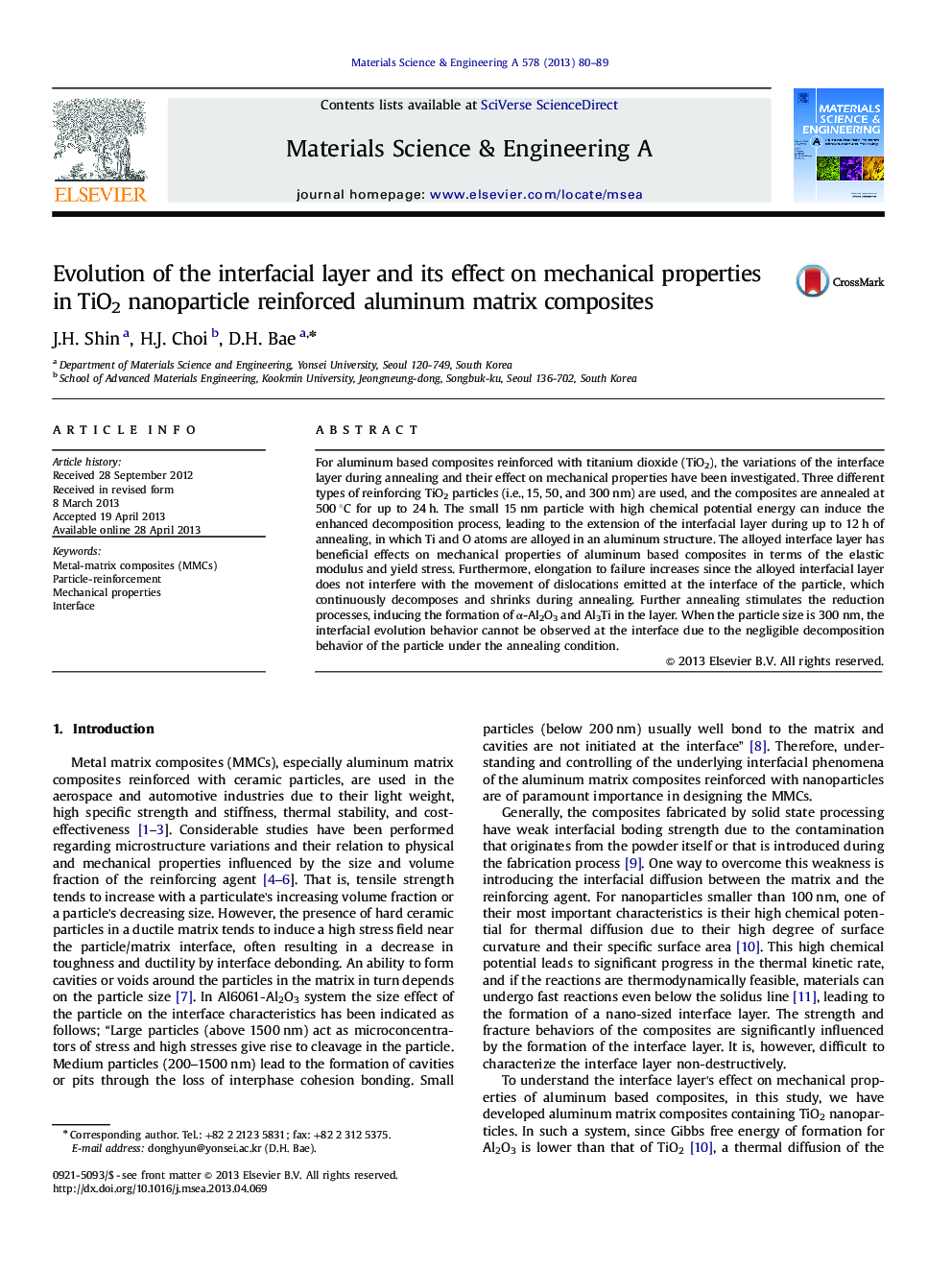| Article ID | Journal | Published Year | Pages | File Type |
|---|---|---|---|---|
| 1576089 | Materials Science and Engineering: A | 2013 | 10 Pages |
Abstract
For aluminum based composites reinforced with titanium dioxide (TiO2), the variations of the interface layer during annealing and their effect on mechanical properties have been investigated. Three different types of reinforcing TiO2 particles (i.e., 15, 50, and 300 nm) are used, and the composites are annealed at 500 °C for up to 24 h. The small 15 nm particle with high chemical potential energy can induce the enhanced decomposition process, leading to the extension of the interfacial layer during up to 12 h of annealing, in which Ti and O atoms are alloyed in an aluminum structure. The alloyed interface layer has beneficial effects on mechanical properties of aluminum based composites in terms of the elastic modulus and yield stress. Furthermore, elongation to failure increases since the alloyed interfacial layer does not interfere with the movement of dislocations emitted at the interface of the particle, which continuously decomposes and shrinks during annealing. Further annealing stimulates the reduction processes, inducing the formation of α-Al2O3 and Al3Ti in the layer. When the particle size is 300 nm, the interfacial evolution behavior cannot be observed at the interface due to the negligible decomposition behavior of the particle under the annealing condition.
Related Topics
Physical Sciences and Engineering
Materials Science
Materials Science (General)
Authors
J.H. Shin, H.J. Choi, D.H. Bae,
